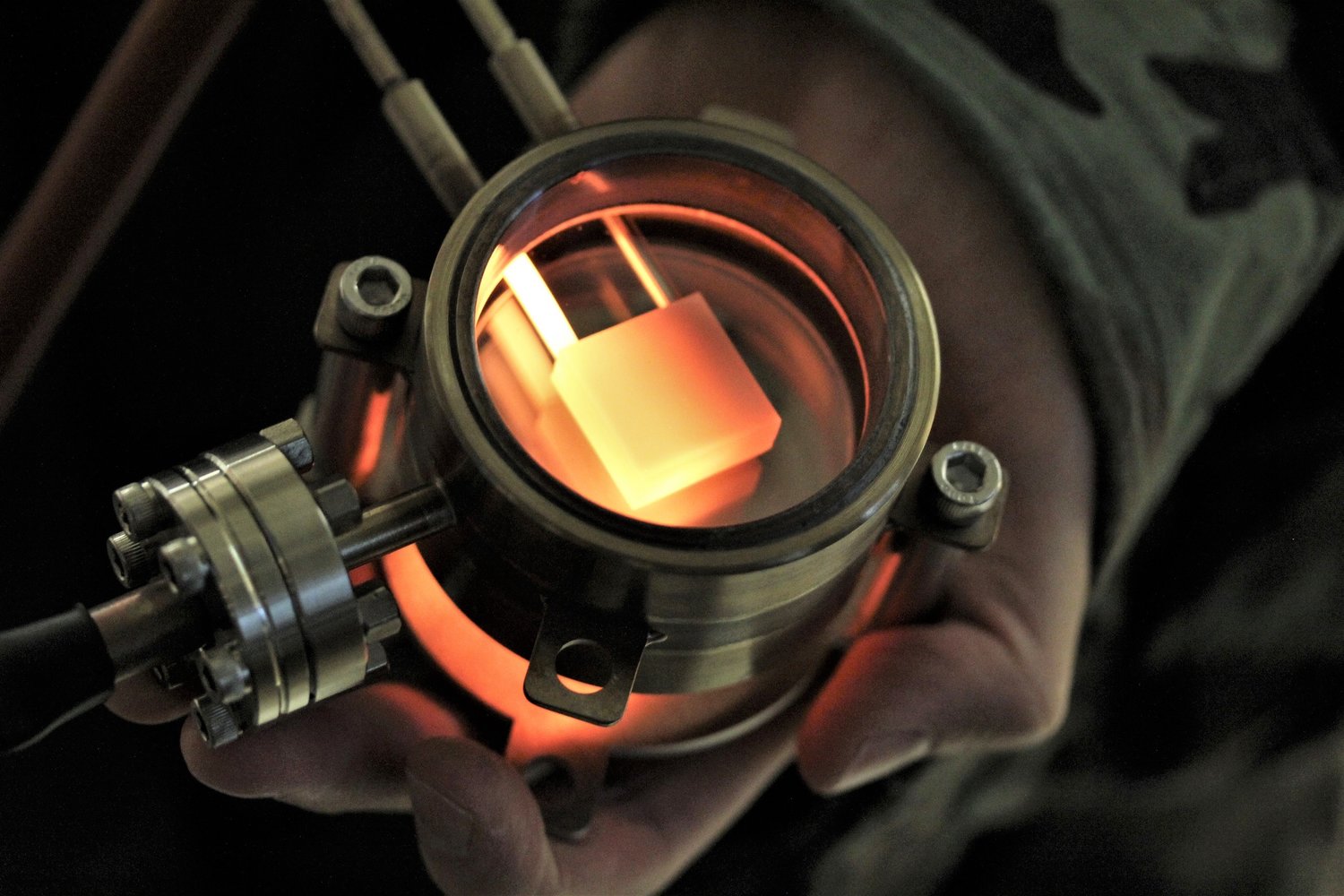Using Technology to Lighten the Load for Troops

By Debbie Gregory.
Most soldiers carry a heavy burden in the field, including an 80-pound backpack filled with essential supplies and tools.
If that’s not heavy enough, soldiers often carry an additional 20 to 30 pounds in backup batteries to power their radios and other necessary electronics.
A new mini-generator about to make its debut might allow one member of a small unit serve as a recharger for the rest of the squad or platoon to save on batteries and lighten loads, according to Veronika Stelmakh, co-founder, along with Walker Chan, of Mesodyne Inc.
Mesodyne’s high-energy-density ultra-quiet portable power generator, about the size of a soda can, reduces the battery load of dismounted warfighters by 75% so they can carry 2 extra gallons of water or 20 extra magazines of ammunition. Developed at MIT’s Institute for Soldier Nanotechnologies and incubated at Argonne National Lab, the technology converts fuel to electricity in the 1-300 W range.
“It could be just one soldier, and a lot of people could recharge off him,” said Stelmakh.
The device, which weighs about one pound, would run off fuel, most likely propane or butane, to generate electricity through a conversion process using infrared radiation to drive specialized photovoltaic cells.
According to an Army release, its Research, Development and Engineering Command is experimenting with wearable solar panels that could recharge batteries and allow soldiers to carry fewer of them.
The command is also looking at backpacks that generate electricity from the soldier’s movements.
Lightning Pack—a 2017 R&D 100 Award Winner—is able to generate electricity as soldiers walk and run through the field, eliminating the need for them to carry batteries. The backpack works by harvesting kinetic energy, while also reducing the heavy load soldiers have to carry around the field. The pack is currently undergoing stringent field tests on the backpacks.







